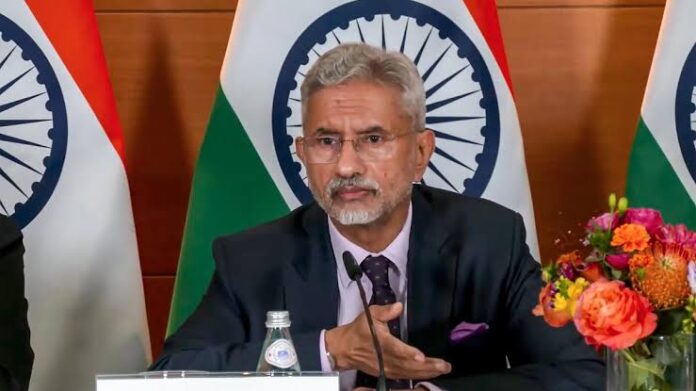New Delhi: India has a “special China problem” and the four-year military standoff on the Line of Actual Control (LAC) and the state of the bilateral relationship call for precautions such as scrutiny of Chinese investments, external affairs minister S Jaishankar said on Saturday.
Jaishankar, who has maintained for long that the normalisation of India-China relations can’t be delinked from peace and tranquillity on the border, made the remarks while speaking on foreign policy issues at a conclave in New Delhi. Relations between the two Asian countries have been at a six-decade low since the face-off on the LAC began in April-May 2020.
He said India is not the only country debating problems linked to China, since China is among the key economic and national security discussions in European countries and the US. “India has a China problem, a special China problem, that’s over and above the world’s general China problem,” he said.
While dealing with trade, investments and exchanges of different kinds with China, the “basics start to go off track” if one neglects to consider that “this is a very unique country with a very different way of working”. India, he said, has had a “very difficult situation on the border for the last four years” and the sensible response is to take precautions.
“It’s common sense that investments from China would be scrutinised. I think the border and the state of relations between India and China call for it,” Jaishankar said. Even countries that don’t have borders with China, such as the US and European states, are scrutinising Chinese investments, he noted.
“Now it has never been the government’s position that we should not be having investments from China or doing business with China…The issue is not do you have investments from China or not, it’s not a yes or no answer. It is what should be the appropriate level of scrutiny, how should you handle it,” he said.
Jaishankar contended that the concept of national security too has been expanded. “If we were completely reliant…on pharmaceuticals from China, does it not have national security implications? If your telecom is based on Chinese technology, can you be impervious to it?” he questioned.
This is a complex factor and the separation between economics and security with certain countries is a “very thin line”, Jaishankar said.
He also pointed out that countries, including India, are complaining about trade deficits with China because they “consciously chose to overlook the nature of Chinese production and the advantages which they enjoyed in a system where they got a level playing field” decades ago.
In May, Jaishankar had contended that Indian firms have to assess business dealings with China through a “national security filter” and do more sourcing from domestic manufacturers amid the standoff on the LAC. Speaking at the annual business summit of the Confederation of Indian Industry (CII), he had argued that national security sensitivities should be evaluated in business propositions.

